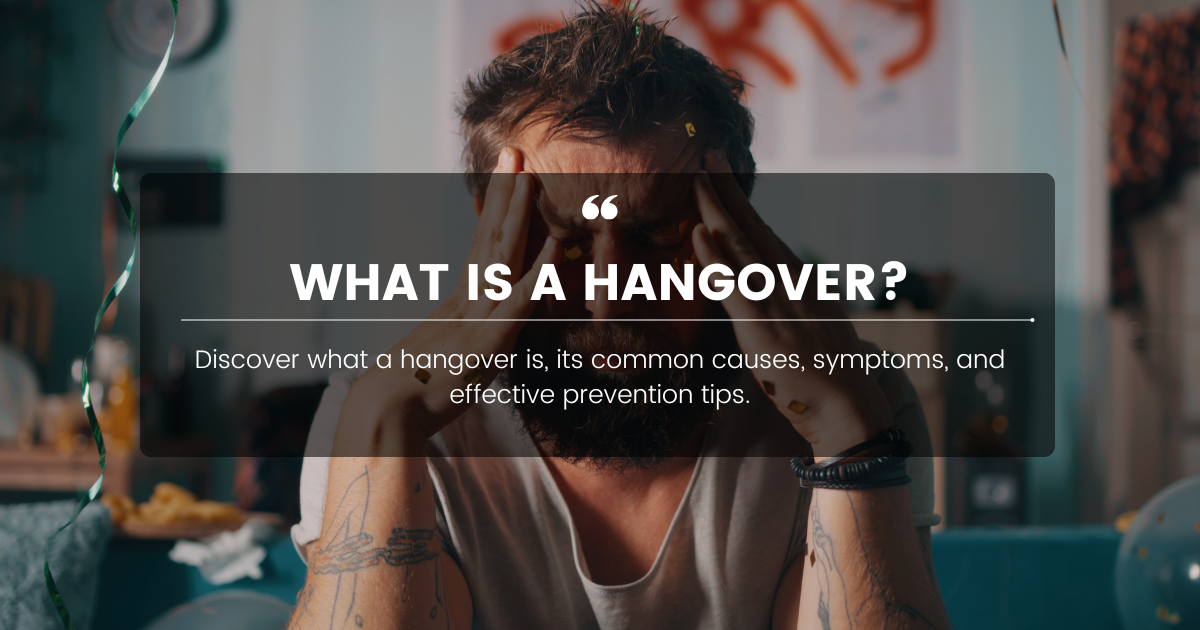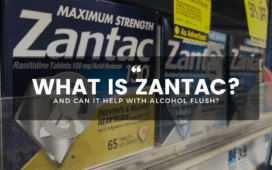We’ve all been there—enjoying a night out with friends, only to wake up the next morning with a pounding headache, nausea, and a general feeling of misery. That, in short, is a hangover. But what exactly is happening in your body to cause these symptoms?
A hangover is your body’s response to excessive alcohol consumption, which can disturb various bodily functions. While the symptoms of a hangover can vary from person to person, they typically involve dehydration, electrolyte imbalances, and fatigue, leaving you feeling unwell for several hours to even an entire day.
What Causes a Hangover?
Hangovers result from alcohol’s effects on the body. Here’s how it happens:
- Dehydration: Alcohol is a diuretic, which means it makes you urinate more often, leading to dehydration. Dehydration contributes to many of the symptoms of a hangover, such as headaches and dizziness.
- Electrolyte Imbalance: The loss of fluids also means losing electrolytes like sodium and potassium, which are essential for nerve and muscle function. This imbalance can leave you feeling weak and fatigued.
- Blood Sugar Levels: Alcohol affects how your liver processes glucose, which can result in low blood sugar. This may explain why you feel shaky, tired, or irritable after drinking.
- Sleep Disruption: Although alcohol can make you fall asleep faster, it reduces the quality of sleep. It interferes with REM sleep, leading to a less restful night, which makes you feel even more exhausted the next day.
Common Symptoms Of a Hangover
A hangover can present a range of unpleasant symptoms, and not everyone experiences them the same way. Some of the most common symptoms include:
- Headache: Often caused by dehydration, a headache is one of the most common and bothersome hangover symptoms.
- Nausea and Vomiting: Alcohol irritates the lining of the stomach, which can lead to nausea or vomiting.
- Fatigue and Weakness: Your body is working hard to process alcohol, which can leave you feeling drained.
- Dizziness and Sensitivity to Light/Sound: The dehydration and imbalance of electrolytes can make you feel dizzy or more sensitive to light and noise.
How Long Does a Hangover Last?
The duration of a hangover can vary depending on several factors, including how much alcohol was consumed, your body weight, age, and general health. On average, hangover symptoms can last anywhere from a few hours to 24 hours. Factors like hydration, the type of alcohol consumed, and individual tolerance can also play a role.
Tips To Prevent a Hangover
While the best way to avoid a hangover is to drink in moderation, there are several strategies to minimize the risk:
- Drink Water: Staying hydrated before, during, and after drinking alcohol can help combat the dehydrating effects of alcohol.
- Eat Before Drinking: Eating a meal high in carbs or fats before drinking can slow the absorption of alcohol into your bloodstream.
- Pace Yourself: Drinking too quickly can overwhelm your body. Try spacing out drinks and sipping them slowly to give your liver time to process the alcohol.
Effective Remedies For Hangovers
Once a hangover hits, the key is to focus on rehydrating, replenishing lost nutrients, and resting. Some remedies that can help alleviate hangover symptoms include:
- Hydration: Drink plenty of water or electrolyte-infused beverages to rehydrate.
- Pain Relievers: Over-the-counter medications like ibuprofen can help reduce headaches and muscle pain.
- Hangover Recovery Aids: Specialized supplements, such as Party8 Hangover Recovery Aid, are designed to replenish essential nutrients and support liver function, helping you recover faster.
Conclusion
Understanding what causes a hangover and how to manage it can make a world of difference for your next night out. While prevention is always better than cure, knowing the right remedies can help you bounce back quicker. Whether you’re hydrating, taking a hangover recovery aid, or simply pacing your drinks, there are ways to enjoy your night without suffering the next morning.
Disclaimer: This article is for informational purposes only. It does not constitute medical advice. If you have any health concerns, consult a healthcare professional.






